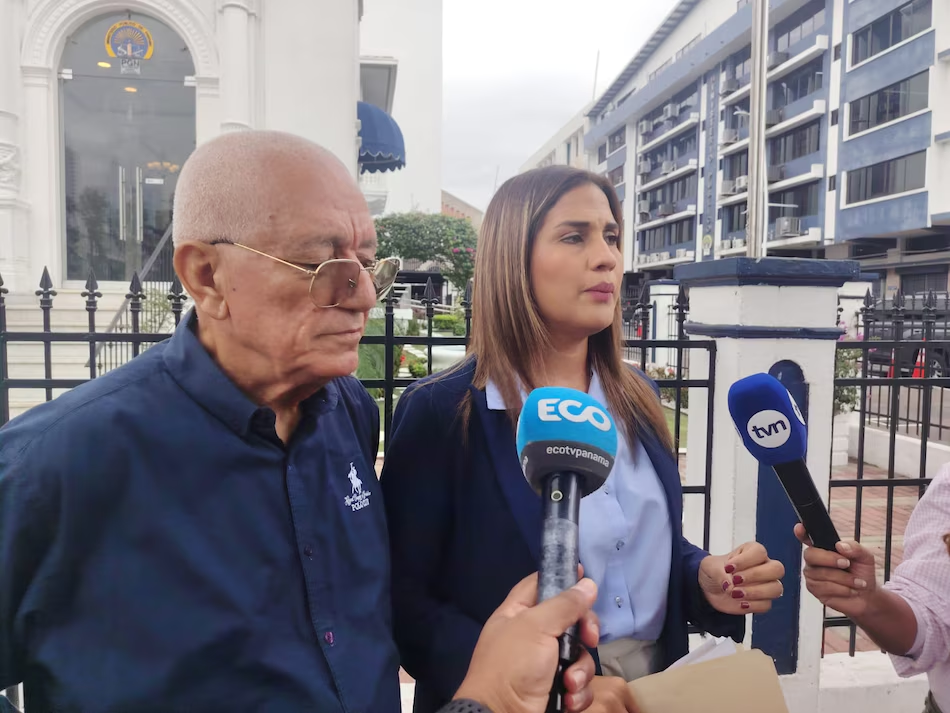WORLD VIEW: Trump demagoguery and world leaders

THE WORLD always observes U.S. Presidential elections with bated breath, as the changing of the guard in Washington produces ripple effects across the globe. This is the first of two articles by Dr. Larry P. Goodson who holds the General Dwight D. Eisenhower Chair of National Security at the U.S. Army War College looking at what U.S. foreign policy might look like starting in 2017, when a new president moves into the White House,
He writes:
Here we will consider the future direction of U.S. foreign policy should the leading Republican candidate, Donald J. Trump, become the next President. The second article will consider the future direction of U.S. foreign policy should the leading Democratic candidate, Hillary R. Clinton, become the next President. Each article will consider U.S. foreign policy in terms of the candidate’s articulated vision of America’s role in the world, national security, and international economics.

From the moment he announced his campaign in June 2015, Donald Trump’s rhetoric has been exceedingly brash, with an emphasis on taunts and bullying of rival candidates, other politicians, and journalists, all as part of a disregard for good manners cloaked in a rejection of “political correctness.” Perhaps more seriously, he has singled out various groups for harsh treatment that would be very difficult to implement and that runs counter to American tradition. Initially, he stated that under his leadership the United States—the land of the Statue of Liberty—would deport over 11 million illegal immigrants, primarily from South and Central America, and then build a wall along the southern border.
Following the November 2015 killings by ISIL terrorists in Paris, Trump said he would ban all Muslims from entering the United States, put U.S. mosques under surveillance, and in March 2016 added that “Islam hates us.”
Religious bigotry stands in stark contrast to the principle of religious freedom on which the United States was originally founded and is enshrined in the First Amendment to the U.S. Constitution. The tone of Trump’s campaign has been widely decried, but has appealed to a segment of the U.S. population animated by a thread of nativist xenophobia that is woven through U.S. history and a more recent thread of Islamophobia.
Trump has also made numerous statements that center on the slogan “Make America Great Again,” with claims that he will make the U.S. military “so powerful that no one will mess with us,” but few details of what that would entail.
Trump seems to possess a view of the United States as a global power, with a dominant military and economy (all of which the United States already has), supportive allies (although the leaders of the United Kingdom, Canada, and France, among others, have criticized him), and little regard for the institutional and legal architecture of the international system that was constructed and led by the United States.
Trump’s national security ideas seem to center primarily on the notion of strength, with no appreciation for the irony of Athenian leaders during the Peloponnesian War, who after making the argument for “might makes right” in the Melian Dialogue, ultimately lost the war.
Trump has called for enhanced interrogation tougher than waterboarding, killing not only ISIL fighters but their families, widespread bombing in Syria, and more. He has no military or national security experience, and his proposals are little more than slogans that could never be implemented, so it is difficult to determine what he would actually do in the national security area if elected.
Trump’s international economic ideas seem to center on yet another campaign theme, that the American economy is in trouble for which the underlying reason is bad trade deals due to poor negotiation skills (his purported strength), rather than manufacturing and services moving to countries with the lowest marginal labor costs. As such, he has railed against trade deficits with China and free trade deals, advancing a protectionist philosophy at odds with America’s long commitment to the widely accepted economic principles that comparative advantage and free trade together lift all boats.
How the United States would continue to lead an international economic order it helped create while abandoning the principles on which it was founded is difficult to ascertain. Perhaps, as erstwhile rival Republican candidate Ben Carson said in his recent endorsement of Trump, “he didn’t really believe those [outlandish] things.”
If Trump could reshape U.S. foreign policy in line with the statements he has made during his campaign so far, then the U.S. position in the world would be very different. The United States would be more isolationist and protectionist, although prone to using military force unpredictably and with little regard for international conventions. Most recently, he has called into question the continued involvement of the United States in NATO, suggesting it costs too much. He almost certainly can do very little of what he has called for, however, as the American government is constitutionally structured to divide power between the three branches at the national level, as well as between the national, state, and local levels.
Additionally, as former CIA Director Michael Hayden recently noted in regard to Trump possibly ordering the killing of the families of terrorists, “If he were to order that once in government, the American armed forces would refuse to act,” because they “are required not to follow an unlawful order.” Thus, the reality is that Trump’s rhetoric probably has virtually no chance of becoming policy, but his unpredictability would leave the international community unsettled. After all, the last century taught the world that demagoguery can be very dangerous.
The views expressed in this article do not necessarily reflect those of the U.S. Army War College, Department of Defense, or The U.S. government.





